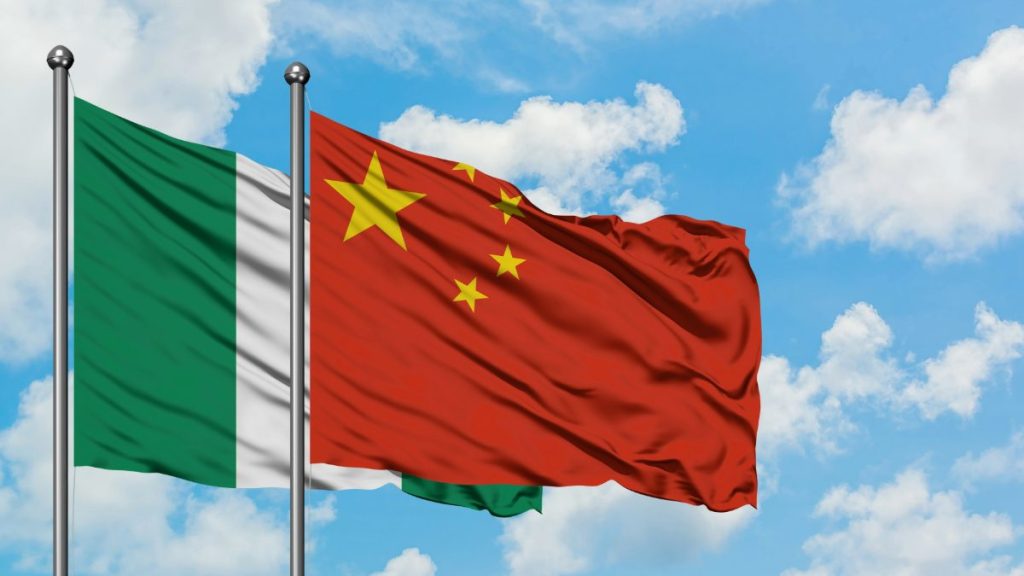In September 2024, Nigerian President Bola Tinubu is set to visit China in what is being seen as a significant diplomatic and economic endeavor. The visit aims to fortify the relationship between Nigeria and China, with potential implications for investment, trade, and Nigeria’s broader geopolitical positioning. As Nigeria grapples with economic challenges, including the removal of fuel subsidies and currency devaluation, this visit could be pivotal in steering the country towards recovery and growth.
Economic Partnerships on the Agenda
Investment and Trade Initiatives
One of the primary focuses of President Tinubu’s visit will be to attract Chinese investment in key sectors of the Nigerian economy. Discussions are expected to center on boosting Chinese investment in infrastructure, technology, and possibly the energy sector—areas where Nigeria desperately needs foreign capital to revitalize its economy. Given Nigeria’s ongoing economic adjustments, including the removal of fuel subsidies and a depreciating currency, these investments could provide much-needed financial relief and drive economic growth.
Exploring a Currency Swap Agreement
Another significant point of discussion could be a potential currency swap agreement between Nigeria and China. Such an agreement would allow trade between the two nations to be conducted in their local currencies, reducing the reliance on the US dollar. For Nigeria, this could mean more stable currency exchange rates, potentially easing some of the pressures on the naira, and making it easier and cheaper for businesses to trade with China.
Implications for International Trade
Diversifying Trade Partners
Deepening ties with China could help Nigeria diversify its trade relationships, reducing its dependence on traditional Western markets. This diversification could lead to more favorable trade terms and potentially better market access for Nigerian goods in China, which is the world’s second-largest economy. By aligning more closely with China, Nigeria could negotiate terms that support its economic agenda, potentially boosting exports and fostering a more balanced trade relationship.
Boosting Technology and Innovation
Enhanced economic partnerships with China could also pave the way for technology transfers in critical areas such as telecommunications, renewable energy, and manufacturing. China’s expertise in these sectors, coupled with its willingness to invest in African markets, could provide Nigeria with the tools it needs to spur domestic innovation and enhance its technological capabilities. This, in turn, could help Nigeria modernize its industries, making them more competitive on a global scale.
Diplomatic Implications: A New Era in Sino-African Relations
Strengthening Sino-African Ties
Tinubu’s visit also holds significant diplomatic weight, particularly as he represents ECOWAS at the Forum on China-Africa Cooperation (FOCAC). China’s growing influence in Africa has been a defining feature of its foreign policy, and Nigeria’s engagement in this context could set a precedent for other African nations seeking similar economic partnerships. This engagement underscores a broader shift where African nations are increasingly looking East to diversify their diplomatic and economic partnerships.
Enhancing Nigeria’s Global Standing
Beyond bilateral ties, Nigeria’s alignment with China could bolster its ambitions on the global stage. Nigeria’s aspirations for more prominent roles in international organizations such as the G20, UN Security Council, and BRICS could receive a significant boost with China’s support. Partnering with a global power like China could elevate Nigeria’s diplomatic influence and help it achieve its broader international goals.
Challenges and Considerations
Managing Debt and Dependency Risks
While Chinese investment presents clear benefits, it also carries risks, particularly concerning debt accumulation and potential dependency. As seen in other African nations, reliance on Chinese loans and technology can lead to significant debt burdens and can sometimes come with strings attached that serve China’s strategic interests. For Nigeria, careful management of these investments will be crucial to ensure they are beneficial without compromising the nation’s economic sovereignty.
Impact on Local Industries
There are also concerns about how increased Chinese influence might impact local industries. The influx of Chinese goods and technology could potentially undermine local businesses if not managed correctly. Strategic measures, such as establishing joint ventures or requiring local content participation, will be essential to ensure that Nigerian industries benefit from the partnership rather than being overshadowed by it.
Public Sentiment and Policy Execution
Economic Policies Under the Microscope
Domestically, President Tinubu’s economic policies, such as the naira floatation and the removal of fuel subsidies, have been contentious. The success of his visit to China may be judged against these policies, with the public closely watching to see if the potential economic benefits outweigh the immediate hardships they have faced. The challenge will be to demonstrate that new investments and trade agreements can translate into tangible improvements for ordinary Nigerians.
Ensuring Transparency and Accountability
Transparency will be key to the success of any deals made during Tinubu’s visit. Past criticisms regarding opaque government dealings, especially with foreign entities, mean that these negotiations will be scrutinized. Ensuring that agreements are fair, transparent, and beneficial for Nigeria will be critical in securing public trust and maximizing the positive impact of the partnerships.
Navigating Nigeria’s Global Economic Path
President Tinubu’s visit to China is more than just a diplomatic engagement; it is a strategic move that could redefine Nigeria’s economic and diplomatic landscape. By balancing immediate economic relief with the need for sustainable, long-term partnerships, Nigeria has the opportunity to set a new course in its global economic diplomacy. As Tinubu navigates these complex dynamics, the outcomes of his visit could shape Nigeria’s approach to international trade and investment for years to come.
Author Profile
- I have been writing articles about finance, the stock market and wealth management since 2008. I have worked as an analyst, fund manager and as a junior trader in 7 different institutions.
Latest entries
- June 4, 2025NewsWireHow Webmasters Are Paying the Price for the AI Boom
- April 24, 2025NewsWireCapital One-Discover Merger Reshaping the Credit Card Industry
- April 15, 2025NewsWireMichael Saylor’s Strategy New $286 Million Bitcoin Purchase
- February 14, 2025NewsWireBreaking Down the U.S. Budget




